English First Peoples 12
There is a well known piece of Indigenous wisdom called the Seventh Generation Principle. The idea is that as you prepare to make a big decision, you should consider how it will impact the lives of people living seven generations into the future. Seven generations is a long time, so this principle reminds us that the decisions we make today can reverberate for hundreds of years. This is what makes the decisions about how we educate this generation so important. In particular, questions of how to build better relations between Indigenous and non-Indigenous are vital to consider.
Storytelling is a vital component of this education process, and it is often through storytelling that wisdom is passed on. Thus, the guiding question for English First Peoples 12 is, “How can sharing wisdom and stories build good relations in a diverse world?” This course has been created in close consultation with Indigenous educators and an Indigenous artist, and seeks to draw on the wisdom found in stories told by Indigenous peoples from the land that is now called North America.
A wide variety of texts are studied, including oral stories, novels, poems, graphic novels, short stories, feature films, television programs, podcasts, children’s books, and memoirs. Some of the texts that were chosen are about the darker chapters of Indigenous-Canadian history, but the course is also about healing, joy, and laughter. It is a course that acknowledges the hurts, sorrows, and injustices of the past and present, but also looks forward to a day of better relations. By encouraging students to become immersed in these texts, hopefully their hearts will be opened and wisdom will be shared, which will clear a way to a future where reconciliation is not just talked about, but realized.
Experience a lesson as your students would
Table of Contents
Lesson 1: Course Introduction
Lesson 2: Course Themes and Land Acknowledgement
Lesson 3: Who is your name?
Lesson 1: Oral Storytelling
Lesson 2: Features of First Peoples Oral Storytelling
Lesson 3: Elders and Knowledge Keepers
Lesson 4: Preserving Traditional Languages
Lesson 5: The Code Talkers
Lesson 6: Authentic Indigenous Voices, Part 1
Lesson 7: Authentic Indigenous Voices, Part 2
Lesson 8: Stories From Your Neighbours, Part 1
Lesson 1: Introduction to Keeper’n Me
Lesson 2: Keeper’n Me, Bih’kee-yan, Part 1
Lesson 3: Keeper’n Me, Bih’kee-yan, Part 2
Lesson 4: Keeper’n Me, Beedahbun, Part 1
Lesson 5: Keeper’n Me, Beedahbun, Part 2
Lesson 6: Keeper’n Me, Soo-Wanee-Quay
Lesson 7: Keeper’n Me, Lookin’ Jake, Part 1
Lesson 8: Keeper’n Me, Lookin’ Jake, Part 2
Lesson 9: Wisdom Collection
Lesson 1: The Truth About Stories
Lesson 2: Canada’s Narratives
Lesson 3: Perspectives on Colonization and Confederation
Lesson 4: Perspectives on Residential Schools: Government and Churches
Lesson 5: Perspectives of Children
Lesson 6: Perspectives of Survivors
Lesson 7: Perspectives of Survivors’ Descendants
Lesson 8: Perspectives of the Government and Churches Today
Lesson 9: Where Do We Go From Here?
Lesson 1: Literature Circle Novel Choices
Lesson 2: Literature Circles, Part 1
Lesson 3: Literature Circles, Part 2
Lesson 4: Literature Circles, Part 3
Lesson 5: Literature Circles, Part 4
Lesson 6: Literature Circles, Part 5
Lesson 7: Literary Analysis Essay, Outline and Rough Draft
Lesson 8: Literary Analysis Essay, Revision and Editing
Lesson 1: Graphic Novels, Part 1
Lesson 2: Graphic Novels, Part 2
Lesson 3: Short Stories, Part 1: Thomas King
Lesson 4: Short Stories, Part 2: Richard Van Camp
Lesson 5: Poetry
Lesson 6: Influential Indigenous Musicians
Lesson 7: Depictions of Indigenous Peoples in Film and Television
Lesson 8: Indigenous Television
Lesson 9: Indigenous Representation in Film
Lesson 10: Film Review (Unit project)
Lesson 1: Final Project Introduction
Lesson 2: Research Skills
Lesson 3: Creating Your Final Project
Lesson 4: Project Finalization
Final Exam
Course Features
- Created in close consultation with Indigenous educators and an Indigenous artist
- Highlights Indigenous storytellers
- Includes an assortment of texts, such as:
- Indigenous Elder oral stories
- Novels
- Short stories
- Television programs and films
- Poetry
- Children’s books
- Appeals to multiple learning styles with a variety of choice in completing some assignments and projects:
- Written presentations, such as reflective paragraph responses, forum posts, poems, an essay
- Oral presentations, such as a speech, poetry reading, a song
- Visual presentations, such as a photo journal, a sketch, drawing, or painting
- Includes tooltips allowing students to hover over the name of the First Nation or Indigenous group, showing a map of the traditional territory of the people that the author or contributor is from
- Explores the difference between cultural appropriation and cultural appreciation
- Encourages students to explore how Indigenous wisdom can be applied to build stronger relations in a diverse world
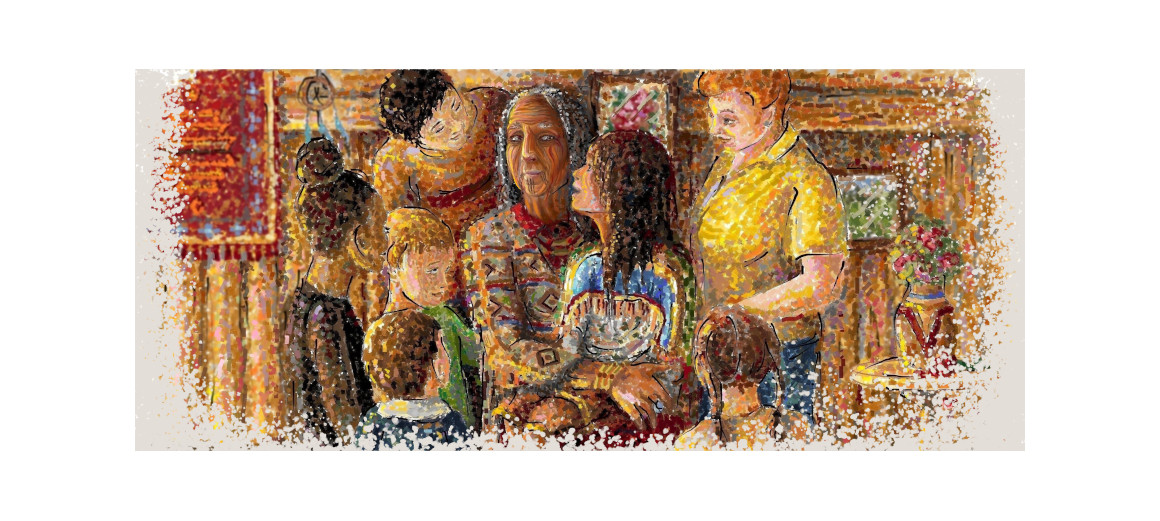
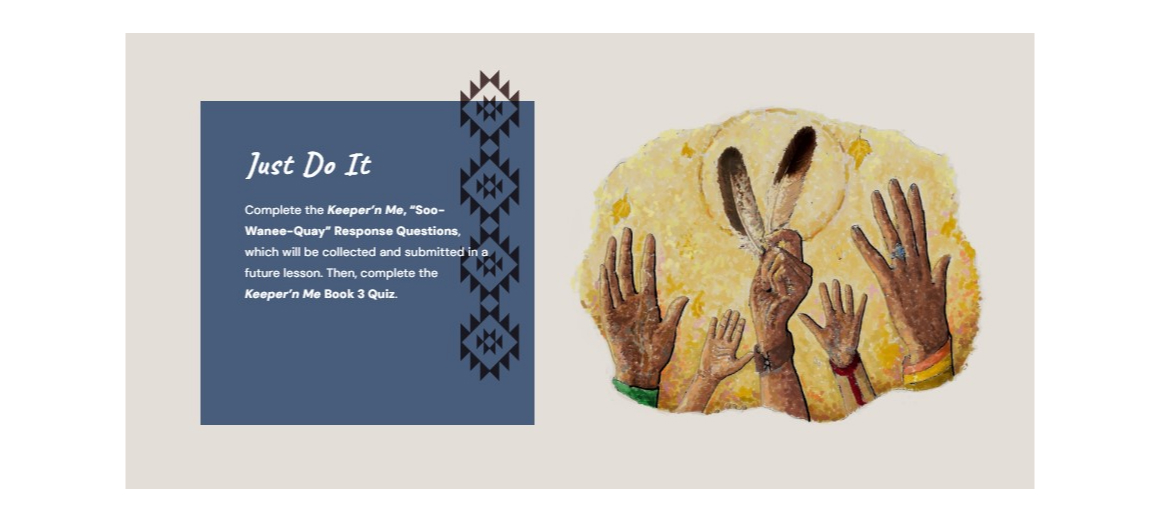
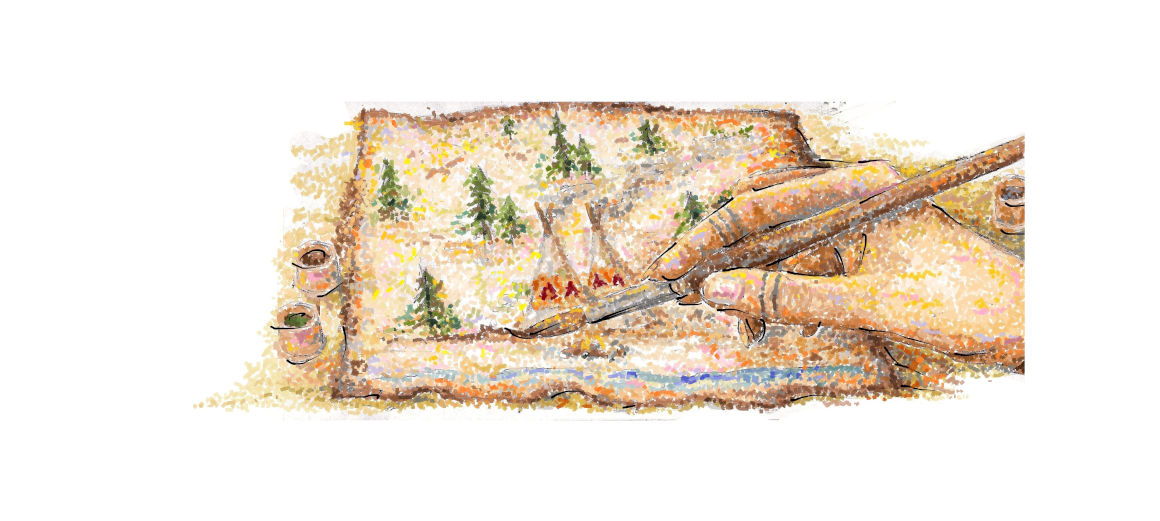
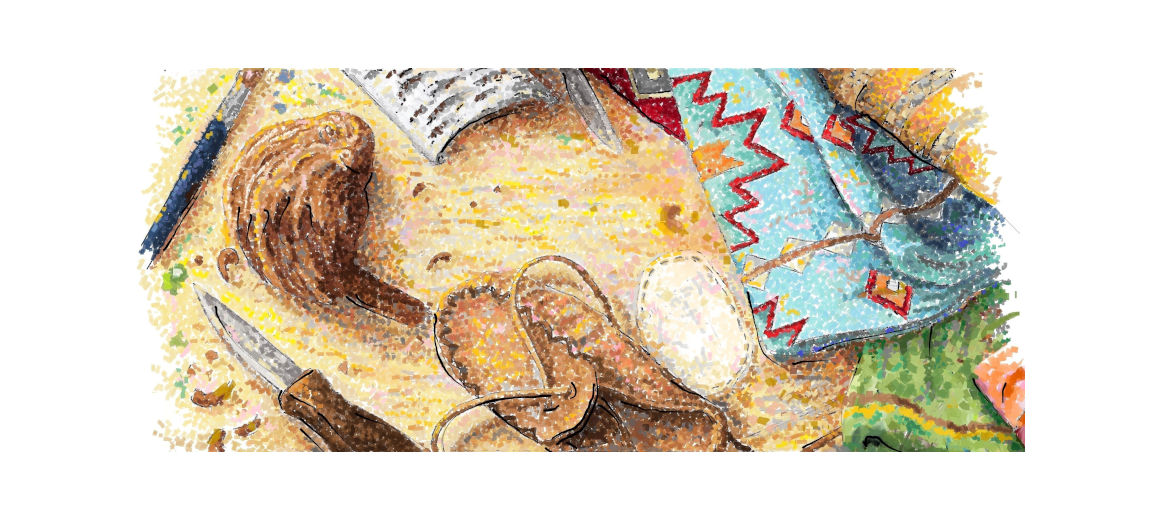
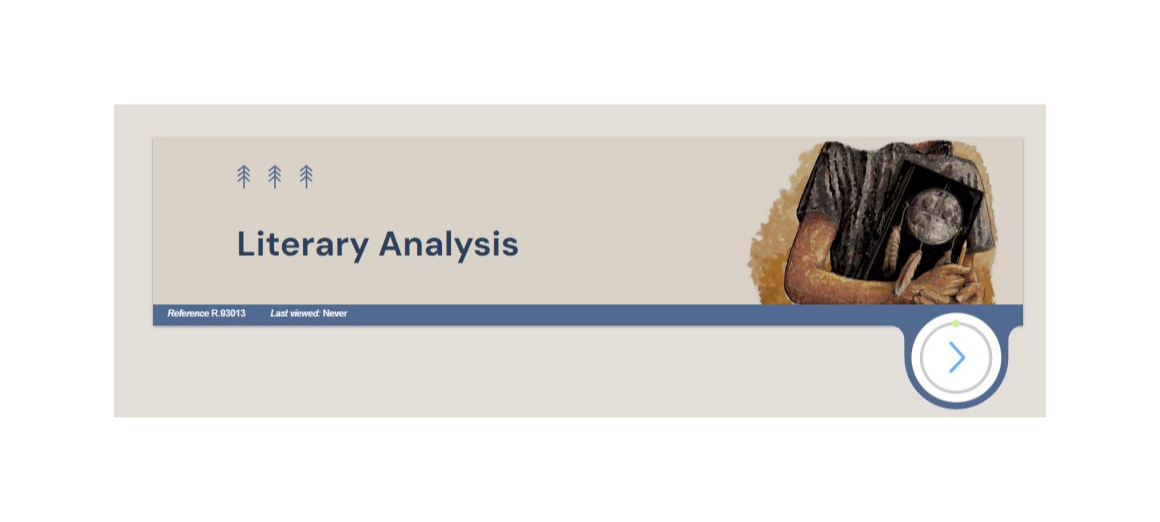
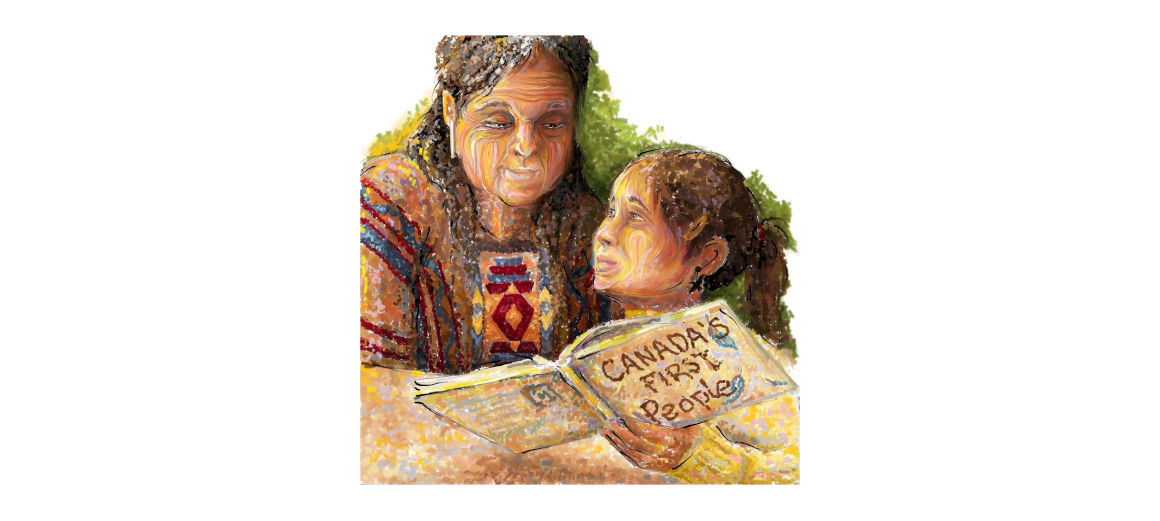
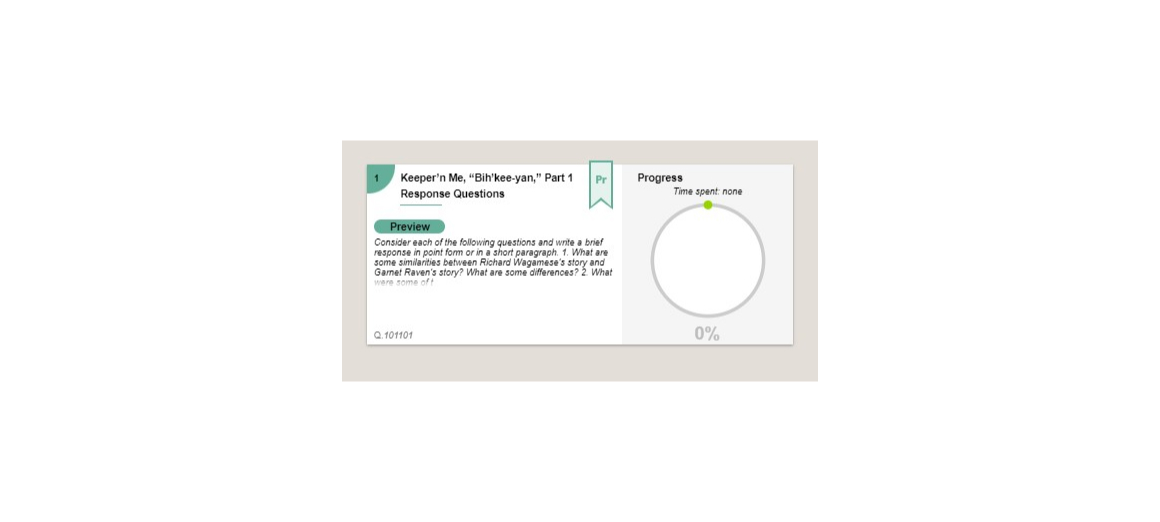
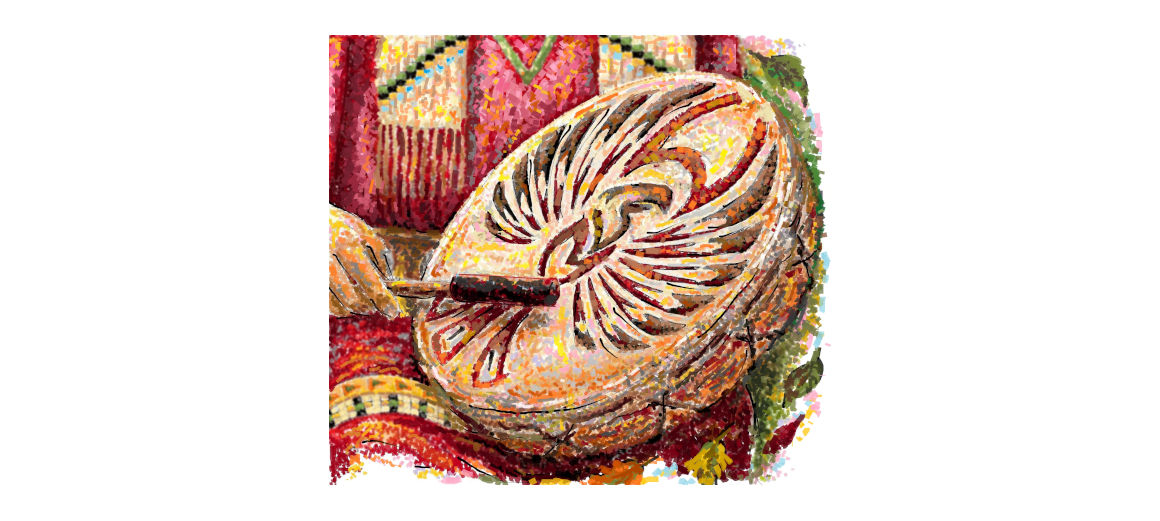
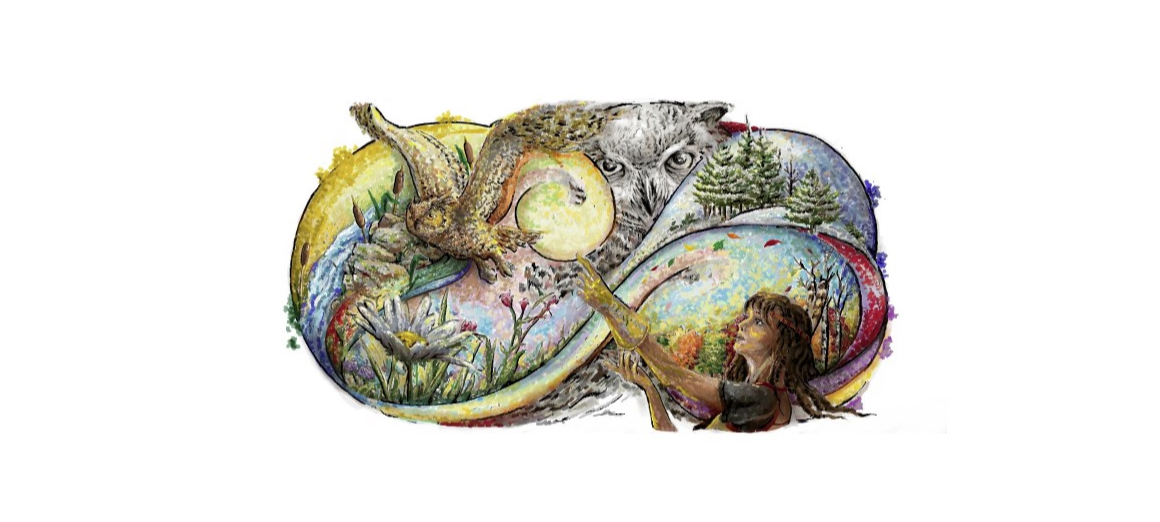
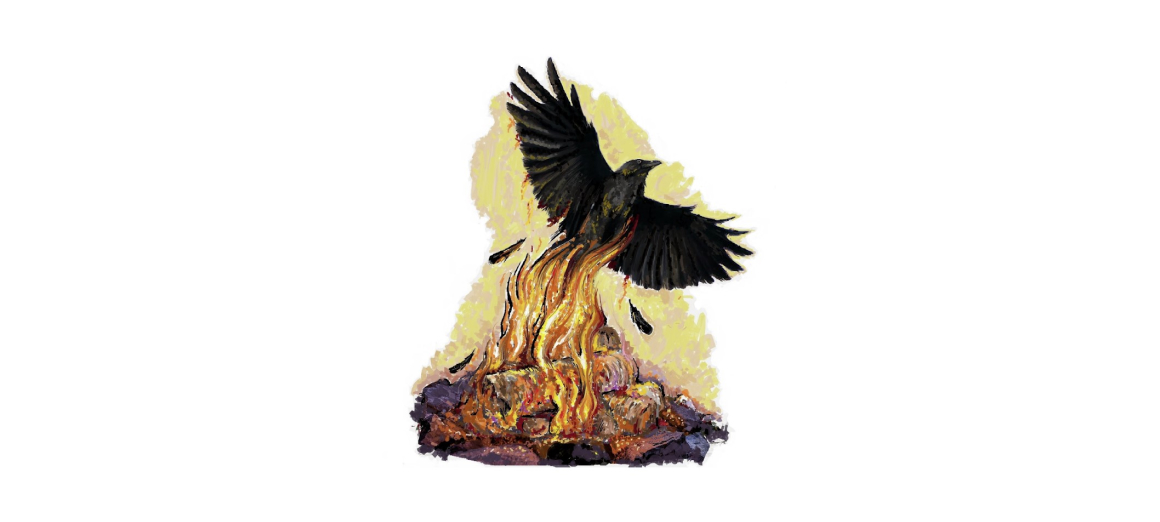
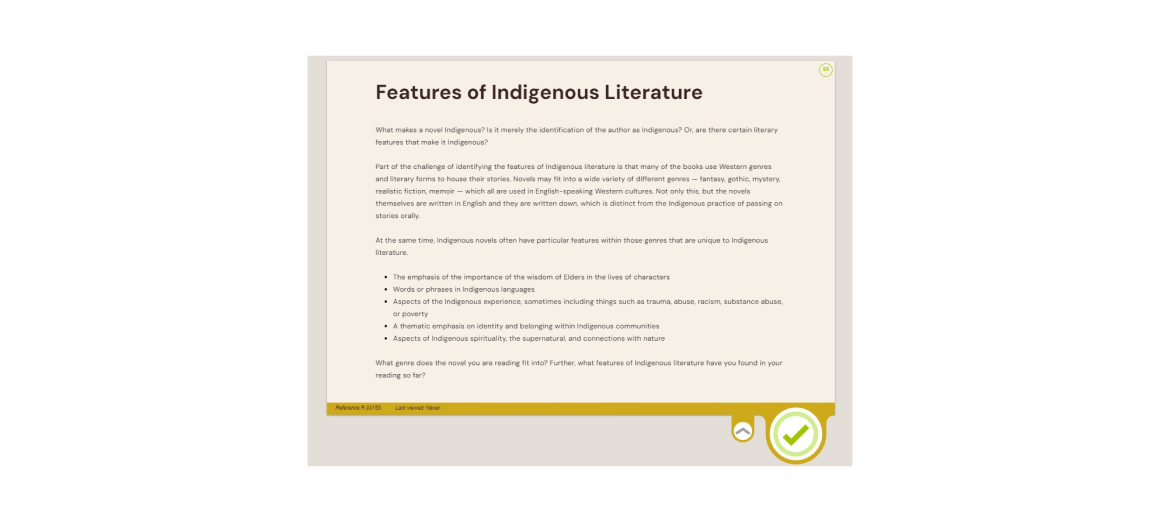
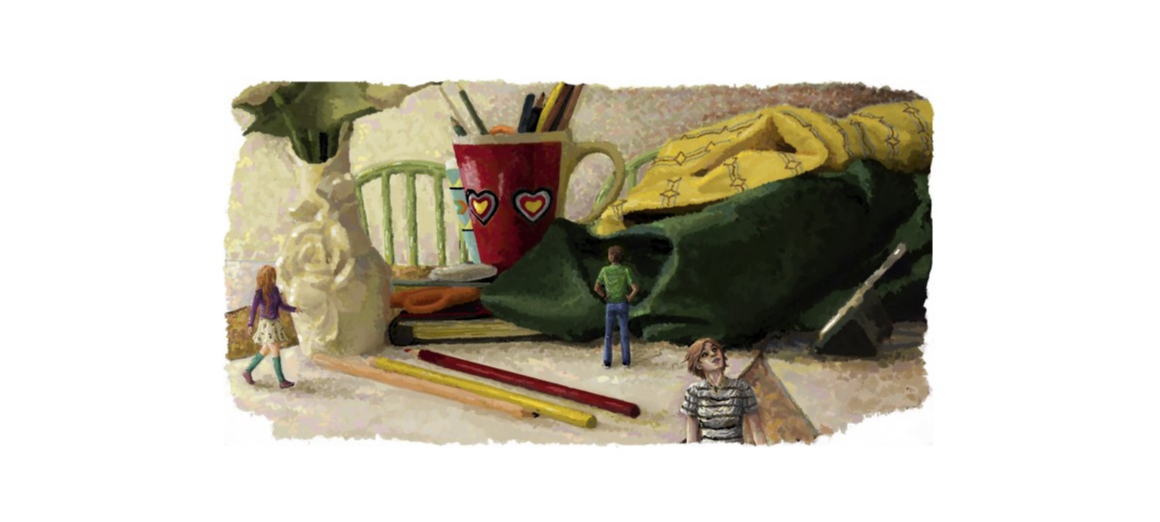
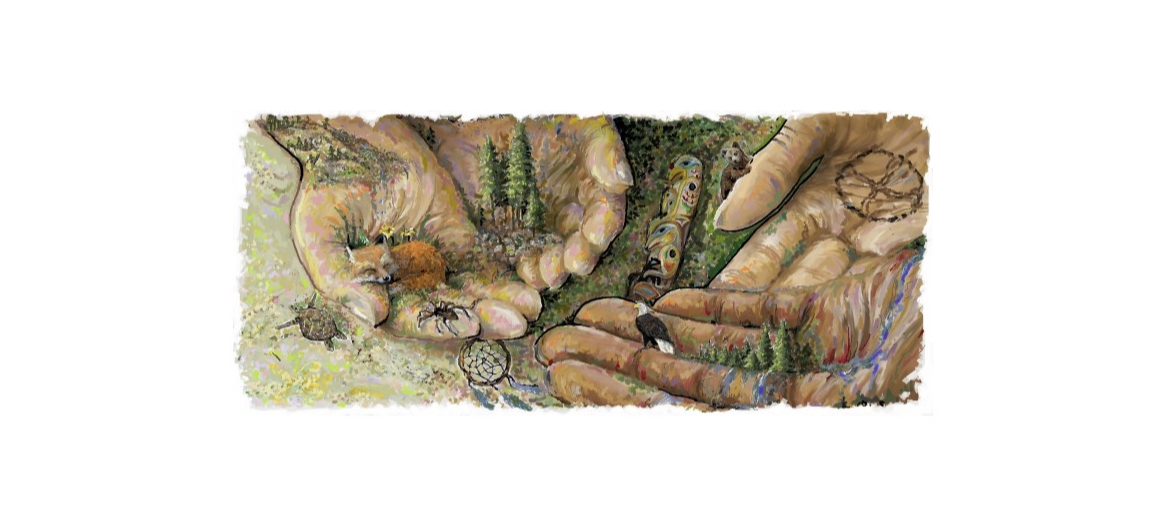
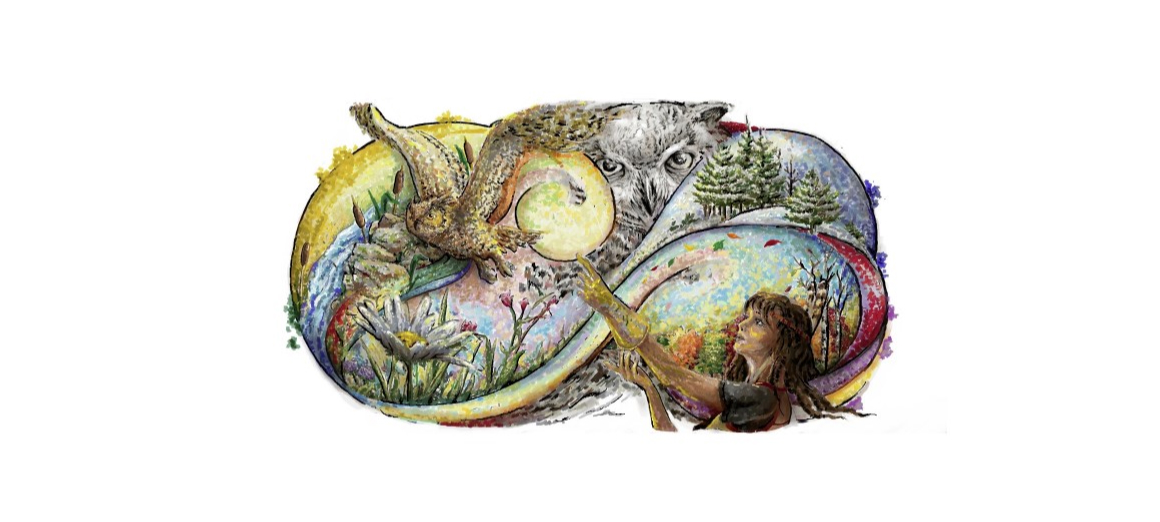
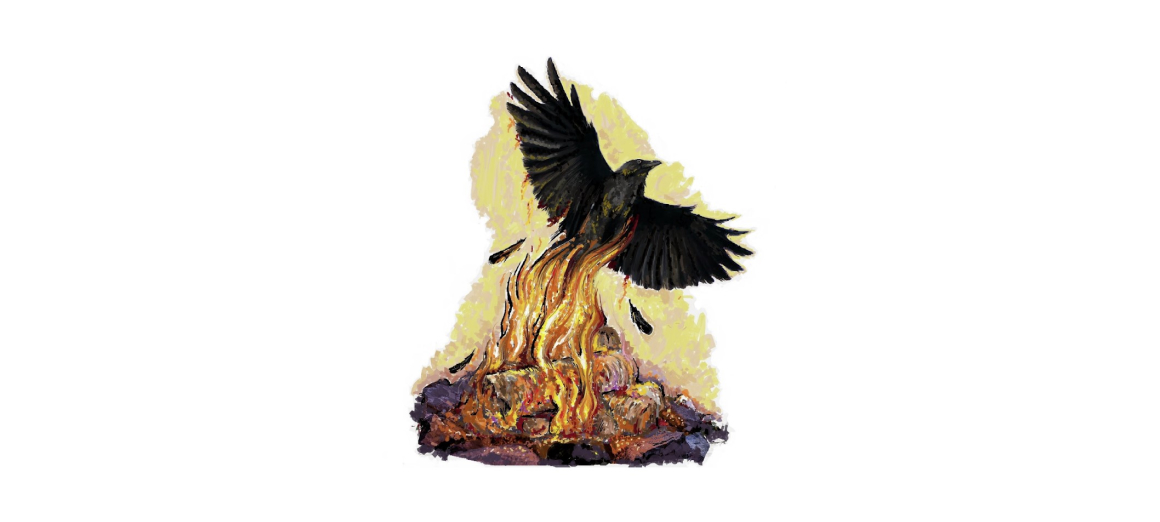
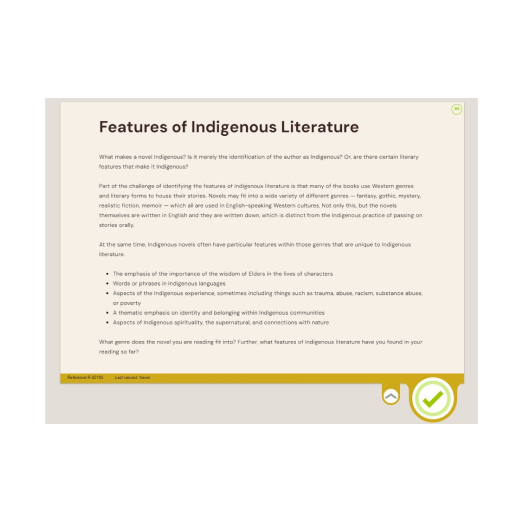
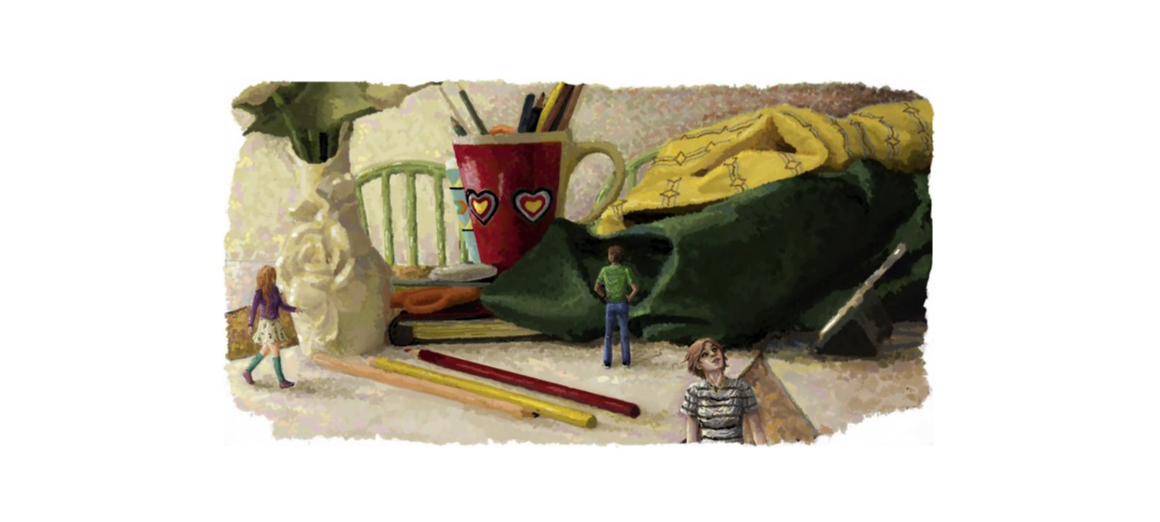
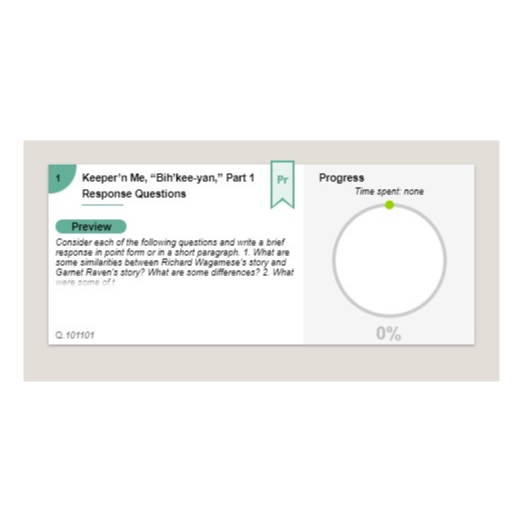
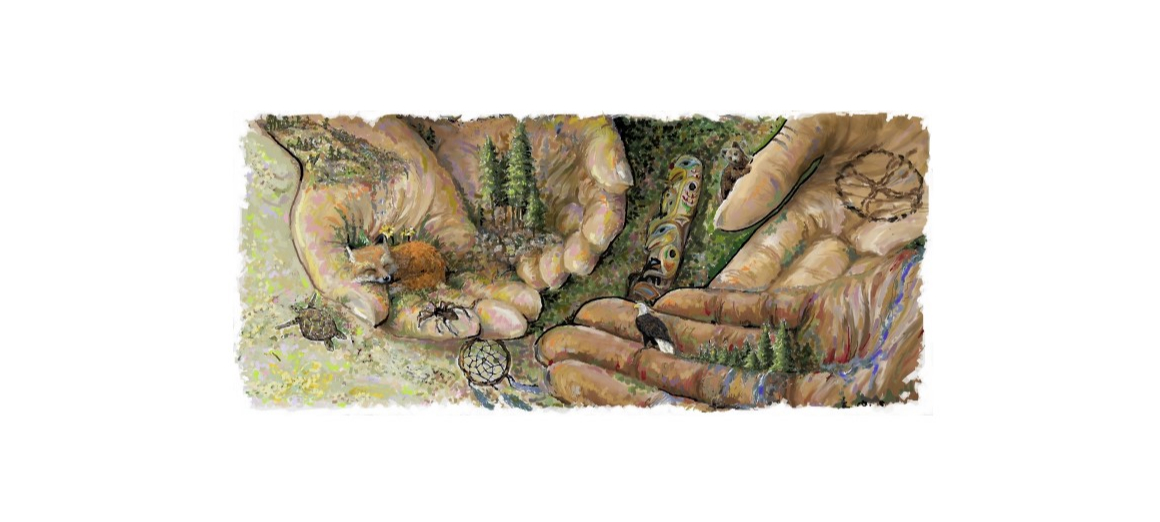

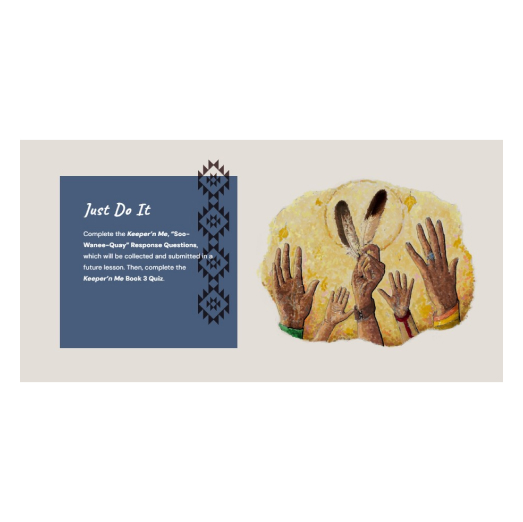


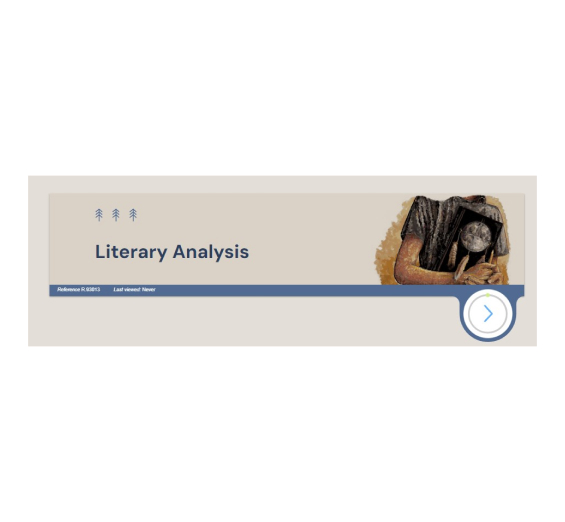


Indigenous Collaborators
Since 2014, MARIE-JULIE LAFRANCE has worked as a freelancer/visual artist, using pencils, brushes, digital technology, and fabrics to express her creativity. Her work has been published in Éclair Magazine, Passengers Journal, and ellipsis… literature & art and many more. She also has worked (as an illustrator) with Leading Edge Magazine, Flash Frog Magazine, Indiroot, and others. Diagnosed as a Highly Sensitive Person (HSP), she is highly detail-oriented and always tries to bring flowy elegance to her illustrations.
You can find her online portfolio at: mariejuliestudio.com
She is passionate about helping bring awareness of Indigenous perspectives to others in the spirit of Truth and Reconciliation with Indigenous Peoples. Shishona is the manager of an online Public Group in cooperation with Trinity Western University.
TWU The Institute of Indigenous Issues and Perspectives (Established by Trinity Western University)
Shishona recently had the privilege of participating in the opening address for the BC Retired Teachers Association Annual General Meeting, sharing her journey of what Truth and Reconciliation mean to her, especially as an educator.
The opening address of the 2022 BCRTA Conference, given on September 30th, Canada's National Day of Truth and Reconciliation. A teacher in the Burnaby School District, Shishona Austin speaks of her own journey in connecting to her heritage and especially as an educator.
Shishona's opening address at the BCRTA Conference